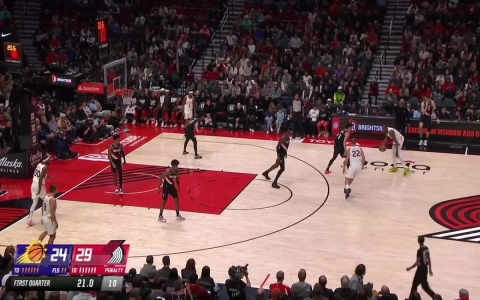Alright, let me tell you about my little adventure trying to get some data on the Phoenix Suns and Portland Trail Blazers. It wasn’t exactly rocket science, but I learned a few things along the way.

First off, I thought, “Easy peasy, I’ll just Google it!” Nope. That got me a ton of news articles, game recaps, and player stats all over the place. Good info, sure, but not exactly what I wanted – a clean, organized dataset to mess around with. I needed something I could really dig into.
So, I started looking at some sports data APIs. I remembered seeing a few mentioned on Reddit a while back. I checked out a couple, and some were free, some were paid. The free ones were… limited. Like, really limited. Think historical data only going back a couple of seasons, or only giving you basic box scores. The paid ones looked promising, but I didn’t want to drop cash on something if I wasn’t even sure what I was doing yet.
Next stop: good old web scraping. Now, I know it’s not always the most ethical thing to do if you’re hammering a website with requests, so I wanted to be careful. I chose a site that seemed to have pretty good, structured data (I won’t name it, gotta keep my sources secret, haha!). I used Python with Beautiful Soup and Requests libraries. If you’re not familiar, Beautiful Soup helps you parse the HTML, and Requests lets you grab the webpage content.
Here’s where things got a little tricky. The HTML was a bit of a mess (as it always is!). I had to inspect the page source carefully to find the right HTML tags and attributes to target. It involved a lot of right-clicking, “Inspect Element,” and figuring out which `divs`, `tables`, and `spans` held the juicy info I wanted. I wrote some Python code to loop through the pages, grab the data for each game, and then store it in a list of dictionaries.
Key steps in the scraping process:

- Find the URL pattern: I needed to figure out how the URLs changed as I went from page to page or game to game.
- Identify the data containers: Pinpointing those HTML elements holding the team names, scores, dates, etc.
- Handle pagination: If the data was spread across multiple pages, I needed to write code to navigate through them.
- Error handling: Websites can change, so I built in some error handling to catch cases where data was missing or the page structure was different than expected.
After getting all the raw data, it was a mess. Dates were in different formats, team names had weird abbreviations, and some values were missing. So, I used Pandas (another Python library) to clean everything up. This involved:
- Converting data types (e.g., turning strings into numbers).
- Standardizing team names.
- Handling missing values (I decided to fill them with 0s for now, but you could use other strategies).
- Creating new columns (like point differential).
Finally, I saved the cleaned data to a CSV file. Now I have a file I can load into other tools for analysis – maybe some charting or machine learning stuff later.
What I learned:
- Web scraping can be a pain, but it’s a valuable skill.
- Data cleaning is essential. You’ll spend way more time cleaning data than actually analyzing it.
- Start small. Get a basic scraper working for one page before trying to scale it up.
- Be respectful of the website you’re scraping. Don’t bombard them with requests.
That’s pretty much it. It was a fun little project, and now I’ve got a decent dataset to play with. Who knows, maybe I’ll find some hidden trends in the Suns’ and Blazers’ performance!
